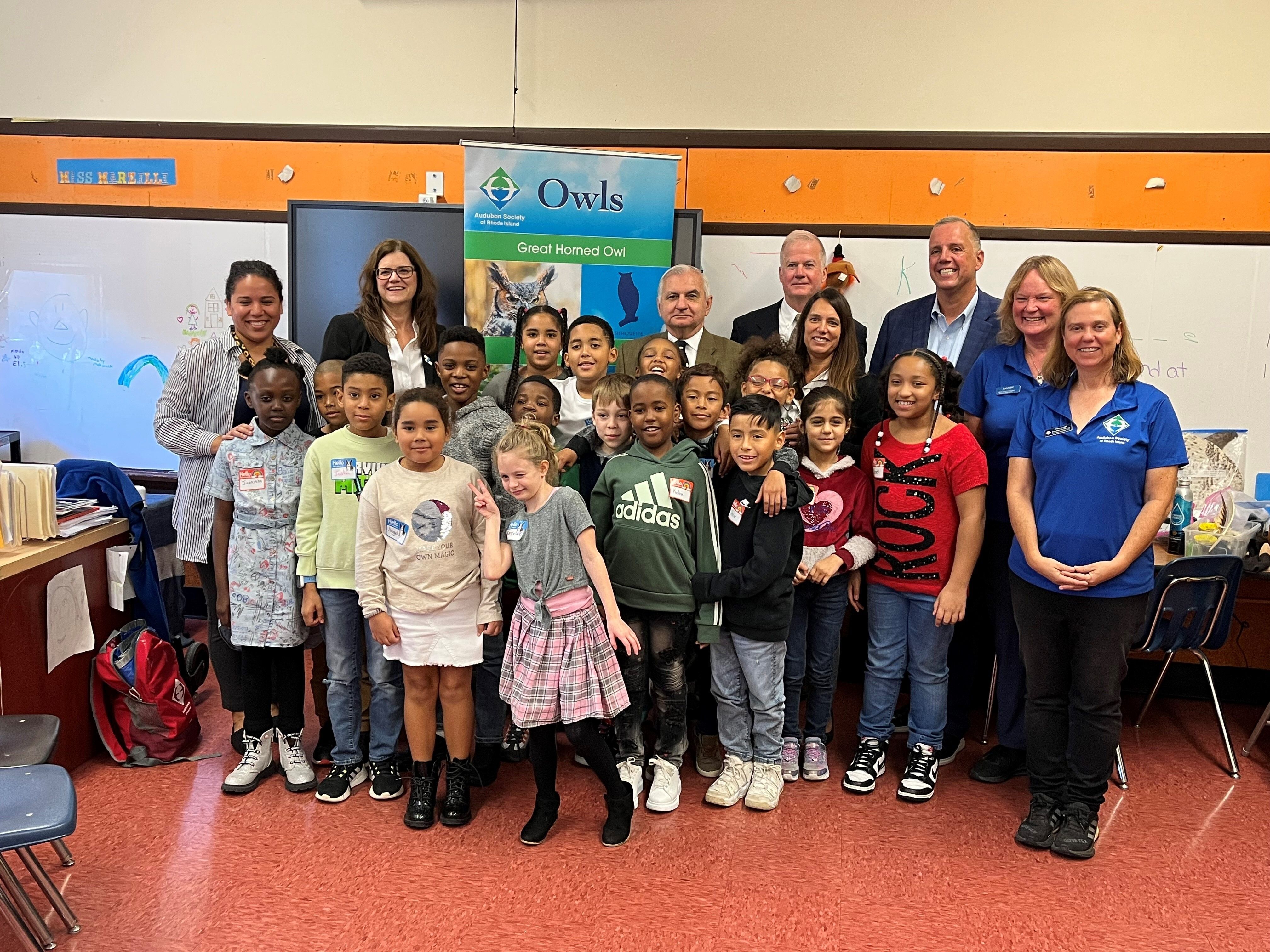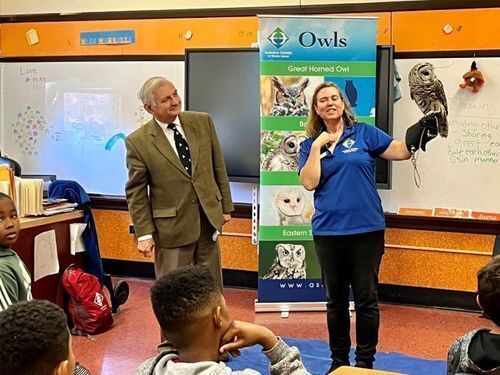
Published November 2, 2022
Audubon Society of Rhode Island Receives $100,000 Federal Grant to Help Students Take Flight & Connect with Nature
Senator Reed delivers federal funding for Audubon's Environmental Education for Urban Schools Initiative

Senator Reed watches Audubon Educator Tracey present a Barred Owl to Elizabeth Baldwin Elementary school students.
U.S. Senator Jack Reed wants more students flocking to nature and learning about science, conservation, wildlife, and the natural world around them.
In an effort to connect K-12 students with nature close to home, U.S. Senator Jack Reed delivered a $100,000 federal earmark to the Audubon Society for their Environmental Education for Urban Schools Initiative in the fiscal year 2022 appropriations law. This federal funding will help the Audubon Society of Rhode Island provide hands-on learning experiences in the field and classroom to 4,000 Rhode Island students in kindergarten through high school, particularly kids in urban areas of Providence, Pawtucket, Central Falls and Woonsocket.
Audubon’s expertise, teaching resources, and natural areas engage students in active learning. Educational opportunities will be offered in science and nature, often with live animals, such as birds and reptiles, that provide children with up-close experiences that can support their learning. The curriculum is aligned with the Next Generation Science Standards (NGSS), enhancing what Rhode Island teachers are doing in the classroom.
Students will be engaged in schoolyards, classrooms, local parks, and on Audubon wildlife refuges. Audubon educators will partner with city schools, afterschool providers, libraries, and community centers to reach students in their own neighborhoods.
“Whether its teaching children about wildlife or how to build a better birdhouse, the Audubon Society does an exemplary job of connecting kids with nature. They really take outdoor fun and environmental learning to new heights and that helps students learn all kinds of important lessons across a range of subjects. This federal funding will help Audubon expand their reach and ensure children from urban areas get to experience the wonders of nature up close and in person. We want every student to be able to appreciate nature and learn about conservation. This program helps bring kids on field trips where they can get outside, explore, and learn about the world around them,” said Senator Reed, who authored the No Child Left Inside Act to help more states provide effective environmental education programs and integrate environmental literacy and outdoor learning into other core subjects.
“Educating students about the natural world is a core mission area of the Audubon Society of Rhode Island,” explains Lawrence Taft, Audubon executive director. “It is imperative that the next generation have a solid understanding of our natural environment. If children do not form a personal connection to the environment, they will not be invested enough to protect it in the future. This federal funding allows us to bring innovative science-based environmental education to students living in Rhode Island cities. We are grateful to Senator Reed for his efforts in securing this funding.”
Audubon will also provide professional development to at least 30 schoolteachers in kindergarten through grade 12 to encourage and support outdoor learning in schoolyards.
Thanks to this federal grant, lack of funding will not prevent students, regardless of where they live, from gaining real world experiences with science and nature that can enhance their learning across the curriculum.
All students are encouraged to participate in these programs. Audubon has an educator on staff who has training in working with children with special needs and developing inclusive curriculum.
Transportation scholarships are available to remove the barrier of high busing costs. These funds will provide students with opportunities for outdoor field explorations at the Audubon Nature Center and Aquarium in Bristol, as well as in the fields, wetlands, and forests of nearby Audubon wildlife refuges.
*STEAM Education is an approach to learning that uses Science, Technology, Engineering, the Arts and Mathematics as access points for guiding student inquiry, dialogue, and critical thinking.
Images courtesy of Senator Jack Reed's office.

















